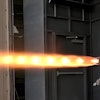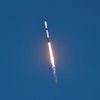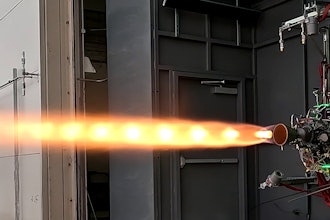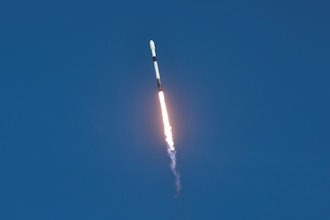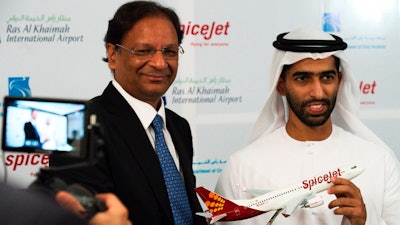
RAS AL-KHAIMAH, United Arab Emirates (AP) — India's low-cost airline SpiceJet announced plans Wednesday to build its first international hub in the United Arab Emirates, offering support to embattled Boeing Co. by saying it would use now-grounded 737 Max aircraft in the operation, once regulators approve the planes for flight.
The hub would be in Ras al-Khaimah, the UAE's northern-most sheikhdom, with SpiceJet chairman and managing director Ajay Singh saying India's second-largest airline would use it to extend its range as far as Western Europe. SpiceJet flights between New Delhi and Ras al-Khaimah should begin in December, Singh said.
For Ras al-Khaimah, whose small airport pales in comparison to the massive Dubai International Airport, the world's busiest for international travel, it is an opportunity to try and bring more tourists to its burnt-orange sand dunes. However, previous attempts to reinvigorate the airport have failed to take off and the UAE already is home to several low-cost carriers.
"We are not competing with any of the airports," Sanjay Khanna, the CEO of Ras al-Khaimah International Airport, told The Associated Press. "We are complementing. We step back and say we are growing."
SpiceJet, which Singh retook control of in 2015 after financial trouble nearly crashed the company, has since embarked on an expansion. It operates a fleet of 111 Boeing and Bombardier aircraft and flies to over 50 Indian destinations and a handful of international routes, including Dubai.
Under the plan, SpiceJet would begin flights in Ras al-Khaimah, then work over the coming months to create the hub there, either under the SpiceJet name or another. It will maintain its flights to Dubai.
Singh said he could see some five Boeing 737 Max aircraft permanently based out of the airport, flying routes to both Eastern and Western Europe. Already, SpiceJet has taken ownership of seven Max aircraft out of an overall order of 136 of the planes, a deal once valued at billions of dollars.
"Ras al-Khaimah is kind of a hidden jewel," Singh said.
Officials declined to discuss terms of the business deal.
Singh offered praise for Boeing as it struggles to get the 737 Max back in the air after a worldwide grounding of the planes following deadly crashes in Ethiopia and Indonesia that killed all 346 people aboard the two planes. The aircraft have been grounded since March.
Already, Chicago-based Boeing has taken a $5.6 billion pretax charge this summer to cover its estimate for compensating airlines that have canceled thousands of flights because of grounded planes. It has disclosed nearly $3 billion in other additional costs related to the grounding.
Boeing has replaced one top executive after the release of internal communications that showed a senior test pilot experienced serious problems while testing flight-control software for the 737 Max on a simulator.
Singh said he expected some form of compensation from Boeing but added that SpiceJet's own pilots had practiced on a simulator recently and came away happy with the changes made to the Max's flight control system, known by the acronym MCAS.
"Boeing is of course an old and very well-known company," Singh said. "Some mistakes were made but I think they have their act in order now and we are very hopeful the aircraft can fly at the end of this year or the beginning of this year."
The expansion by SpiceJet comes as India's growing middle class has helped to make it one of the world's fastest-growing air travel market. India had the world's third-largest growth in passenger journeys in 2018, adding 18 million to a total of 116 million journeys, according to the International Air Transportation Association.
SpiceJet's expansion to Ras al-Khaimah comes as the UAE already is home to three major discount airlines — Sharjah-based Air Arabia, FlyDubai and a just-announced partnership with Abu Dhabi's struggling Etihad Airways and Air Arabia. Meanwhile, the Ras al-Khaimah International Airport itself remains a quiet airfield, with just three flights listed on its boards Wednesday as its duty free shop offered customers a free shot of tequila or vodka.
Despite the local competition, authorities remain optimistic about the venture.
"Where you see it's a saturated market, we see huge growth in the market, especially for Ras al-Khaimah," said Sheikh Khalid bin Saud Al Qasimi, a son of Ras al-Khaihmah's ruler. "We see huge potential for it to grow."

